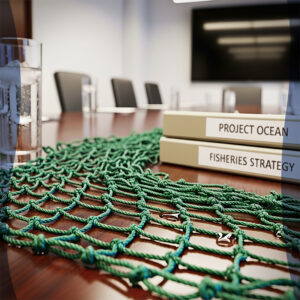
How Website Visitor Analysis Can Sharpen Your Sales Strategy
Understanding your website visitors means unlocking insights to sharpen your sales strategy, personalize outreach, and drive measurable results.
By Nadia Bulcourt – November 18, 2024

Small and medium-sized business leaders know that a high-performing sales team is essential to remain competitive. But what skills define a great salesperson in 2025? Beyond relational ease, today’s sales professional must possess a range of specific qualities to understand client needs, adapt their approach, and close deals effectively.
Active listening, analytical ability, clear communication (formulation and reformulation), resilience in the face of challenges, task management discipline, patience, and a competitive spirit: each of these skills plays a critical role in sales success.
By developing these qualities within their teams, businesses can achieve real commercial maturity, build a strong organizational foundation, and optimize growth.
For a salesperson to excel, communication lies at the heart of their activity. Effective communication goes beyond just talking; it requires specific skills that help understand clients’ needs, build lasting relationships, and close sales satisfactorily.
The first essential skill for a successful salesperson is active listening, which goes far beyond simple conversation. Active listening means capturing the needs, expectations, and sometimes unspoken cues of each client. This ability to immerse in the prospect’s words not only helps in clearly understanding their search but also in providing a well-aligned response and solution.
Active listening combines with a deep understanding of needs. A skilled salesperson knows how to restate the client’s expectations to ensure clarity and demonstrate attentiveness. This approach builds client trust and lays a solid foundation to move towards closing the sale.

Formulating a sales argument is one thing, but knowing how to rephrase a client’s statements or objections is equally crucial. By restating, the salesperson shows they’ve grasped the client’s message, fostering smooth, constructive exchanges. This also helps correct any misunderstandings and align the conversation, avoiding costly mistakes.
Formulation skills are especially crucial today, where personalization is a key client expectation. Skillfully rephrasing without imposing ideas gives the client the feeling of being heard and understood, while also enabling the salesperson to guide the conversation toward the company’s solutions.
Lastly, a successful salesperson must have solid analytical skills to tailor their approach to each client’s profile. Not all clients have the same expectations or sensitivity to sales arguments, which is where adaptability comes in. Being able to quickly analyze received information, client profiles, and verbal and non-verbal cues allows the salesperson to adjust their speech and arguments in real-time.
This adaptability helps maintain a dynamic and relevant exchange, demonstrating expertise while establishing a more personalized connection with the client.
If communication is the first essential skill for a salesperson, it alone is not enough to meet everyday challenges. Sales is a demanding field, often marked by rejections, obstacles, and downtimes. Essential qualities like resilience, discipline, and patience provide the consistency and perseverance necessary for sales success.
Resilience is the ability to overcome obstacles and bounce back from rejection or a failed sale. In the commercial field, failures are an integral part of the journey: not every prospect will turn into a client, and not every effort will immediately yield results. However, a resilient salesperson learns from each experience and returns stronger without getting discouraged.
This resilience also helps maintain a positive, dynamic attitude, essential for staying motivated over time. A resilient salesperson inspires confidence and motivation in their clients by showing commitment to support them through difficulties.
Discipline is the foundation of effective sales management. A disciplined salesperson follows a rigorous routine and organizes their day to maximize productivity. This includes actions like thorough call planning, efficient follow-up management, and diligent prospect tracking.
In a sales environment, discipline ensures that nothing is left to chance. Every opportunity is followed up, every client receives dedicated attention, and the salesperson remains aligned with their objectives. Discipline is not just a personal asset; it’s a strategic pillar for maintaining a high-performing sales organization.
Finally, patience is a key quality for a salesperson who aims to establish strong, lasting relationships with clients. In sales, some decisions take time, and rushing to close can backfire. A good salesperson knows how to listen and support the client at their own pace, respecting their needs and hesitations.
Patience also allows for empathy, understanding client constraints, and waiting for the right moment to act. This approach builds client trust and ensures long-term satisfaction, which is essential for customer loyalty.
The skills and qualities of a successful salesperson are not only individual assets. In fact, they directly impact a company’s growth, sales goals, and customer loyalty. Let’s see how these skills translate into concrete benefits for SMEs.
Communication skills, combined with resilience and discipline, allow salespeople to approach set goals methodically and strategically. A well-prepared and disciplined salesperson does not hesitate to follow up on prospects, manage daily tasks, and prioritize effectively. This structured approach maximizes conversion rates and ensures steady sales growth, meeting the company’s ambitions.
By adopting a patient attitude and being attentive to client needs, the salesperson also ensures successful negotiations without rushing decisions. This is an effective method for quality sales, solidifying business relationships from the very first interaction.
Clients appreciate being genuinely listened to, understood, and supported. A competent salesperson who takes the time to rephrase and meet specific expectations builds trust with the client. Through patience and empathy, they lay the foundation for a long-term partnership where the client feels valued.
This trust naturally leads to loyalty. A satisfied client is not only likely to return but also to recommend the company to others. Thus, a salesperson’s relational qualities become a growth lever for the business, reducing the constant need for new client acquisition.
Lastly, these skills directly contribute to customer satisfaction and brand image enhancement. A client who feels heard, understood, and respected will develop a positive perception of the company. By providing quality follow-up and meeting expectations, the salesperson creates an optimal customer experience, which positively reflects on the company’s reputation.
A high-performing salesperson is thus a brand ambassador: their daily actions influence client perceptions and strengthen the company’s credibility and market position.
To achieve sales goals and build customer loyalty, investing in specific skills is crucial. However, not all leaders have the resources or time to continuously train their teams. This is where commercial outsourcing becomes a strategic solution: by relying on experts like Finelis, you benefit from experienced salespeople and tailored support.
At Finelis, we help SMEs develop commercial maturity and structure a strong organization with proven sales talents. Choose performance and flexibility with our outsourcing service, and watch your sales growth take a new leap.
Contact us today to discuss your goals and discover how Finelis can help you achieve them.
If you’re ready to take steps to grow your sales and are wondering which path to take is best—hiring, outsourcing, or training—we’re here to help.

Understanding your website visitors means unlocking insights to sharpen your sales strategy, personalize outreach, and drive measurable results.

Lead generation is no longer about quantity but quality. In 2025, success comes from targeting the right prospects and guiding them with trust and care.

There is no absolute winner in the CRM battle. The right CRM is the one that matches your goals, teams and sales maturity.

Leadership can be isolating. Executive coaching provides support, perspective, and tools to help leaders make confident and effective decisions.

In times of growth or transition, an external sales audit brings clarity and structure to your sales organization. Discover how expert insights can quickly turn underperformance into tangible results.

This image illustrates the mindset of an agile leader, able to navigate change and uncertainty with composure and clarity.